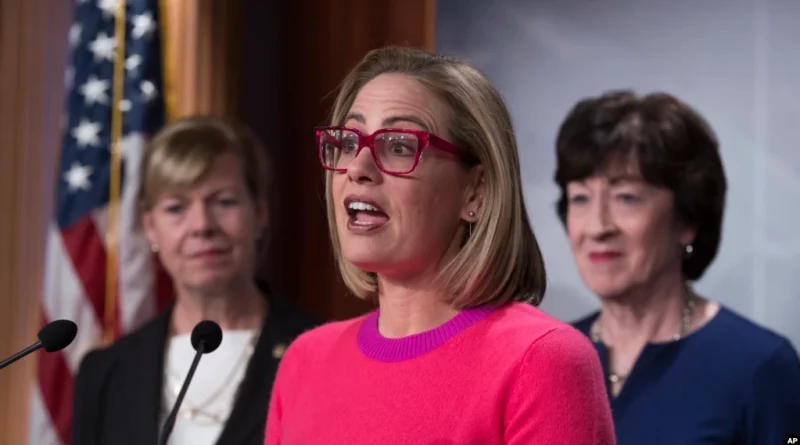Senator Kirsten Sinema announced her withdrawal from the ranks of the Democrats
Senator Kirsten Sinema announced her withdrawal from the ranks of the Democrats
Arizona State Senator Kirsten Sinema said she is leaving the Democratic Party and registering as an independent senator.
“Like many Arizonans, I have never fit perfectly into either of the two national parties,” Sinema wrote in a column for the Arizona Republic newspaper.
Sinema intends to keep her Democratic appointments on the committee, an aide to the senator, who spoke on condition of anonymity, told Reuters.
The aide did not say whether Sinema would continue to participate in Democratic caucuses. However, in an interview with Politico, also released this morning, Sinema said she would not enter the Republican caucuses. If true, Democrats will be able to hold on to assertive control of the upper house of Congress.
Sinema’s statement had a bombshell effect because the future of President Joe Biden’s administration’s agenda in the second half of his term has already been overshadowed by Republicans, who are expected to gain control of the House of Representatives by winning the midterm elections on Jan. 3.
Sinema’s statements so far indicate that she will continue to work independently, as she has demonstrated for the past two years – working with Democrats and Republicans to pass legislation without fear of creating obstacles that neither the White House nor Senate Majority Leader Chuck Schumer is comfortable with.
Aides to Schumer and Senate Republican Leader Mitch McConnell have not yet commented on Sinema’s decision.
With her new status as an independent candidate, Sinema has solidified her role as an independent player in the Senate. A similar role was played by the late Republican Senator John McCain. Senators from Arizona have historically been innovators. Barry Goldwater, who represented Arizona in the Senate in the 1950s and 1960s, breathed new life into the conservative political movement in the United States, but suffered a crushing defeat when he ran for president in 1964 against Lyndon Johnson.
Sinema has two years left in her six-year term in the Senate and could be re-elected in 2024 if she decides to run again. If that happens, it remains to be seen whether she will be challenged by her former partymates.
Sinema and Democratic Senator Joe Manchin have kept Washington in suspense for the past two years as they have repeatedly refused to support the votes needed for legislative initiatives sought by President Joe Biden.
At the same time, they have worked together on such sweeping bills, including a climate change investment bill. Just this week, Sinema and Republican Tom Tillis unveiled an immigration reform plan that caught the Senate’s attention.
In an article for the Arizona Republic, Sinema described her frustration with what she called a rigid bipartisan system that encourages unquestioning obedience rather than independence.
“I joined a growing number of Arizonans who reject party politics by declaring their independence from the broken party system in Washington. I registered as an Arizona independent,” Sinema wrote.
Sen. Rafael Warnock’s victory in Tuesday’s runoff election in Georgia gave the Democrats and their supporters 51 seats in the Senate. Two other senators, Bernie Sanders and Angus King, are registered as independent candidates but mostly support Democrats.
Sinema said her decision was influenced by the fact that a growing number of people in her state are also declaring themselves politically independent, rejecting the political labels of both Republicans and Democrats.
“We don’t line up to do what we’re told, automatically subscribe to whatever positions the national political parties dictate, or address every issue with labels that divide us,” she wrote.
